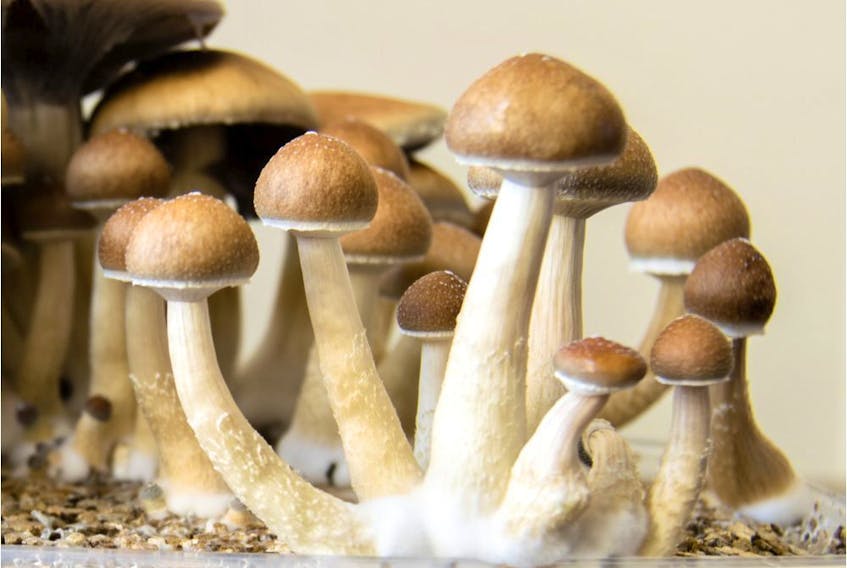Dr. Joe Tucker says he’s not hallucinating when predicting magic mushrooms and other psychedelic drugs can inspire positive medical effects.
In fact, the Alberta-born scientist is teaming up with the University of Calgary to craft derivatives of the illicit fungi’s active ingredient psilocybin to use in treating mental illness.
In doing so, his company MagicMed Industries and the U of C would create a stash of psychedelic knowledge — the psybrary — at the university.
“There’s been some really encouraging trials by highly-regarded institutions around the world on things like LSD and MDA,” said company CEO Tucker, speaking from Boston, Mass.
“They modulate peoples’ sense of perception and that’s a good thing if you have addiction, depression or anxiety.”
Tucker’s colleagues will work with bioscientists and synthetic chemists at the U of C collaborating to develop new molecules based on a psilocybin blueprint.
“We’ll create molecules you couldn’t create before, that you couldn’t make with just biology or chemistry,” he said.
The goal is to mimic some of the effects of the original drug, said Tucker, while excluding their negative impacts, like incapacitation and “bad trips.”
“These are potent molecules and if you can harness that and use it appropriately in highly controlled settings, the potential for a positive impact on human health is so large,” he said.
The use of magic mushrooms dates back thousands of years and they are commonly consumed recreationally as a hallucinogen, though their possession and sale is illegal in Canada.
According to Health Canada, they don’t typically result in a substance-use disorder.
The medicinal and recreational legalization of cannabis in Canada has been a catalyst in unlocking the medical potential of other illegal drugs, said Tucker.
“A lot of research didn’t happen because these things were proscribed but the stigma is coming off,” he said. “We should have done this a long time ago.”
That’s dovetailing with the increasing destigmatization of mental health issues, he added.
His research colleagues, said Tucker, are also examining the medical potential of other hallucinogens like MDA, mescaline and ayahuasca, the latter derived from a South American plant.
“There are a number of molecules that all hit the same receptors in the brain,” he said.
Probing the potentials of psychedelics is an exciting research chapter at the U of C, said its Associate Vice-President of Research and Innovation Steven Larter.
“Partnerships like this combine front-line discovery with providing real solutions to society and create opportunities for our researchers and students to help bring cutting-edge knowledge to market,” he said.
The research is being funded by corporate partners at the cost of several million dollars and probably won’t result in medical applications for a decade, said Tucker.
“We intend to have several projects going, each with its own partner, and each having a typical life cycle in the range of two years,” he said.
on Twitter: @BillKaufmannjrn
Copyright Postmedia Network Inc., 2020









